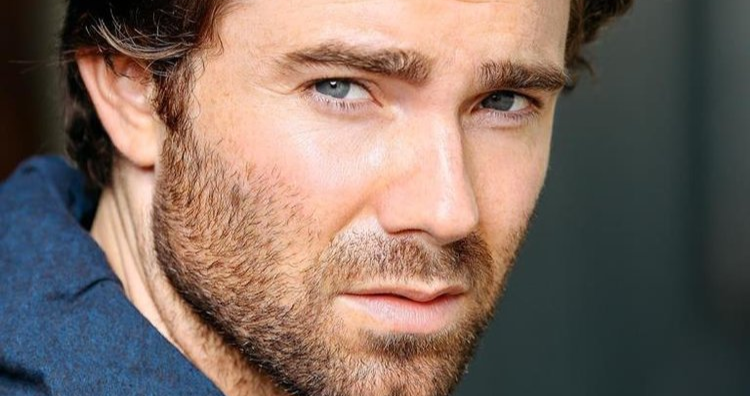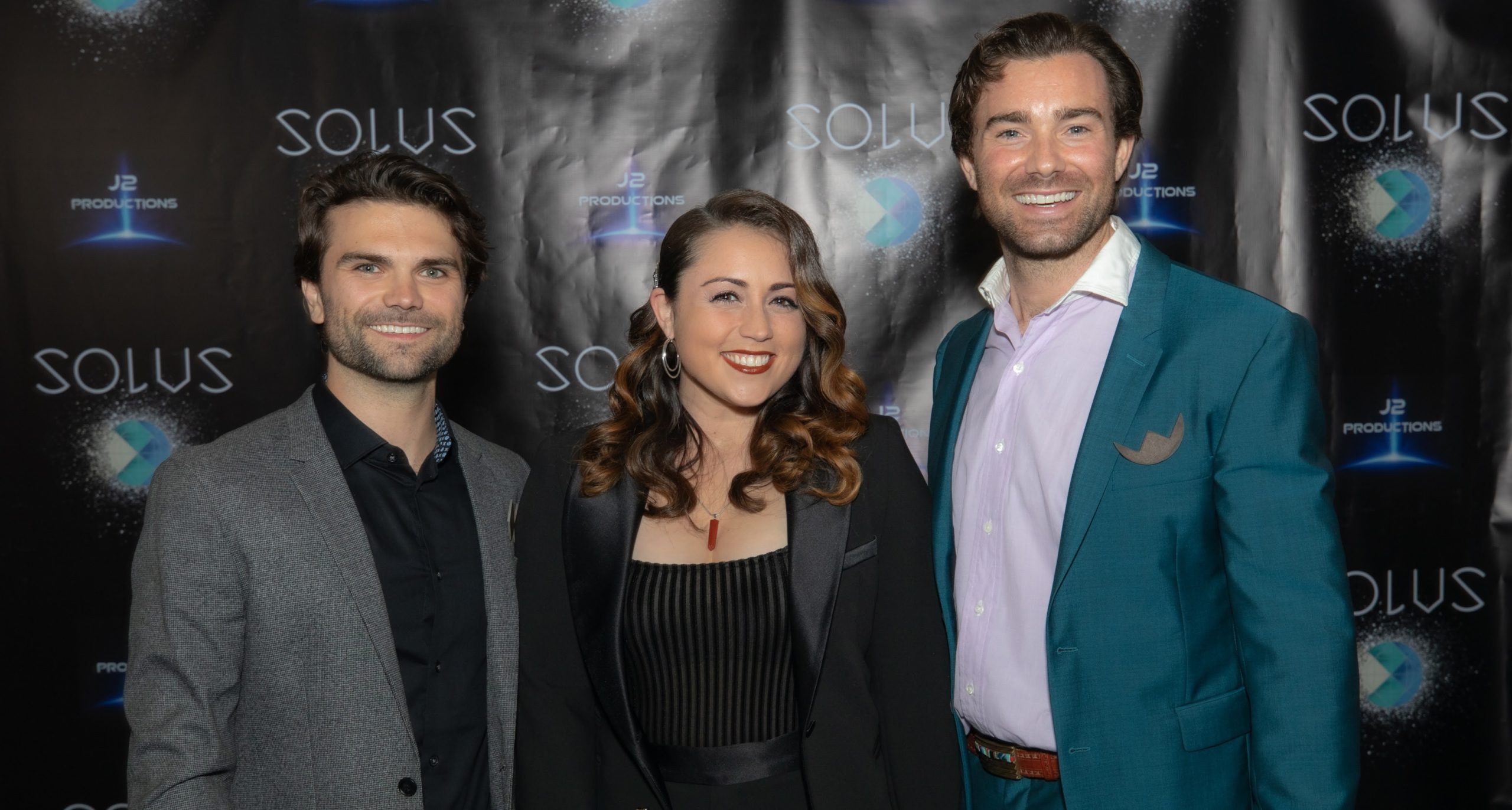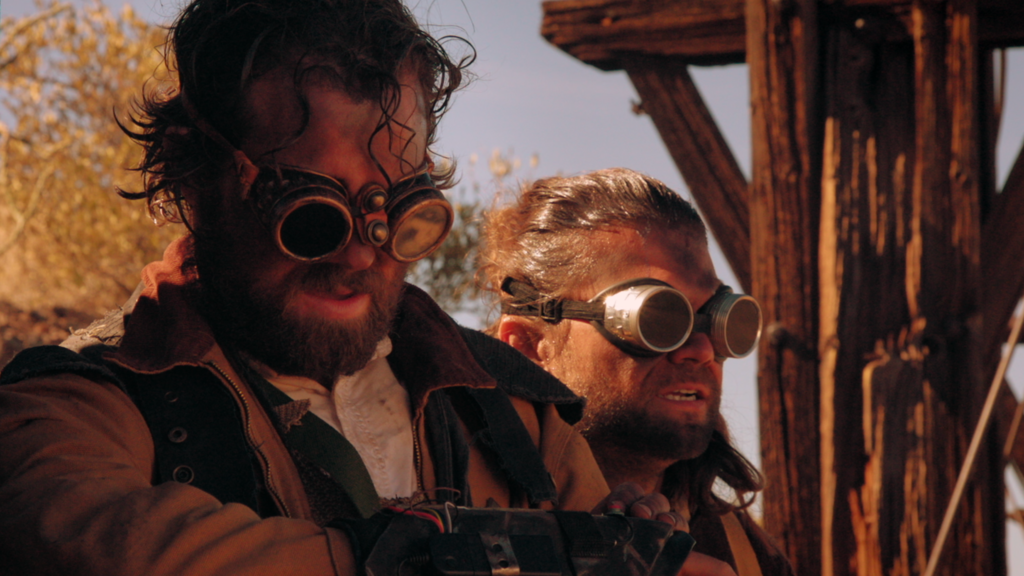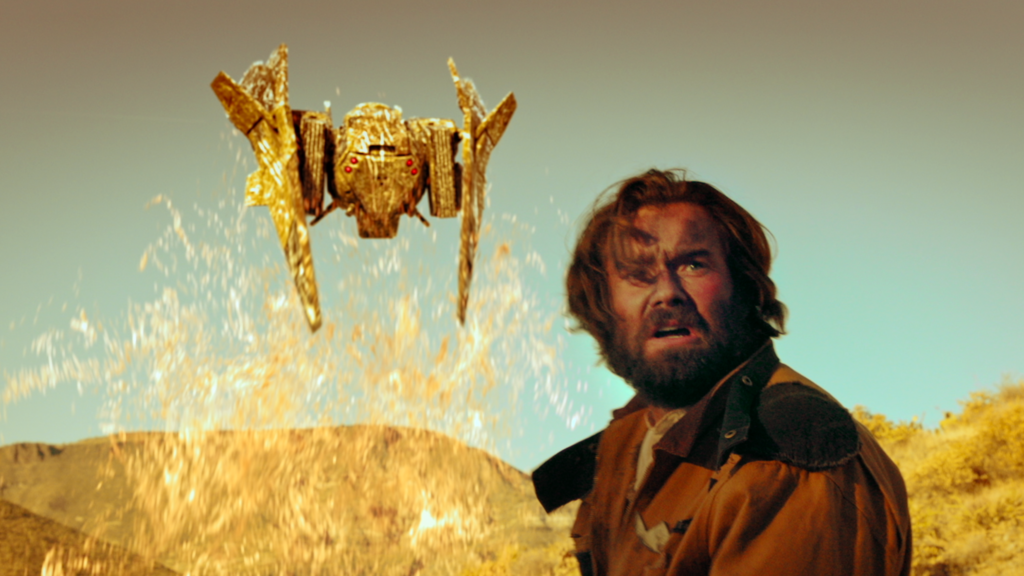
Jacob Chattman had his first exposure to theater back in Arizona as a mime when he was only 8 years old. “I ended up studying mime and movement for nearly 15 years. I gave up the craft after college and worked at a lifeless corporate job in Boston, MA for 5 years until I had a traumatic health scare. I made a promise to myself that if I recovered from surgery, I would move to LA and do what I’ve always wanted to do – work in Film and T.V.” says Jacob
indieactivity : What acting technique do you use?
Jacob Chattman : I use a method technique based on Lee Strasberg’s work, taught by the Sharon Chatten Studio, that includes sense memory- incorporating real-life experiences, along with the magic “if” of imagination. I also utilize my mime training as much as I can (Building boxes, pulling ropes, etc… I’m kidding).
Let’s talk about this series pilot called SOLUS. How did you prepare for such a role?
JC : Preparing for SOLUS was a physical endeavor, and although I’m a pretty in-shape guy, I really wanted to be in peak form knowing that it was going to a grueling shoot (both physically and mentally). I also wanted to make sure I didn’t injure myself before I got there, so there was a fine line to run between paranoia and conditioning. I had the luxury of writing the character myself, so I knew exactly what I needed out of James to drive the story. I spent weeks analyzing his mannerisms (how he walked, talked, touched his face, etc..) and used them during my everyday life. I carried the script with men and I must have run the scenes aloud and in my heads thousands of times before the shoot.
Watch SOLUS TV Series Pilot – A Mythological Sci-fi Adventure Entertainment for Network Syndication
In your lead role on the project, how did your ‘choices’ work for you?
JC : I have always believed in Uta Hagen’s philosophy where you make your choices, do all your preparation, spend hours on backstory and the life of the character and then THROW IT AWAY right before you shoot and live in the moment – all those things I’ve prepared are still there, but this affords me the flexibility to be in the moment and adapt.
How do you create the character from a script into a person?
JC : Character’s, for me, take on a life of their own inside my head. I try to build them as detailed as possible, learn their desires, sit with them. The script, therefore, is a guideline of moments, and it’s up to me to create a living breathing creature that WILL end up in those moments in the correct way – Sort of like connecting the dots, but in the most interesting way.
What part of the story challenged you when you read it? What drove you to get on the project?
JC : James was a far more irascible person than I am in real life, so feeding this rage with my own real-life experiences was a challenge- His anger, rooted in the pain of loss, was something I had to continuously motivate between scenes. The fight scene, being the peak of this expression, was the most challenging for me emotionally – and most rewarding.

Explain one creative choice you took the onset of this production?
JC : There is a moment where James calls out David saying “I don’t care.” The way this line was initially written was as a volatile slice into David as he abandons him to the hateful wildness. However, in the moment, the line came out fraught with the pain of leaving his friend. The director liked that version better.
You’re not new to indie films. What do you enjoy about the work that keeps you working?
JC : I am obsessed with the process of creation and somewhat masochistic- two qualities that keep me doing this.
Give an example of a direction you received from the director during the production?
JC : At one point, James is battling the Hawk using a grenade. It’s a very Indiana Jones-esque moment. The director, Adrian, wanted this scene to be exuberant and exciting, not only was his energy motivating us all to keep our excitement and tension high. After the first take, Adrian came over and slapped his hands on my shoulders and said “What would James do.” His words inspired me to kiss the last grenade I threw. After the take, I thought maybe that was a little overboard – he ended up keeping that take.
How did you collaborate with your cast members from scene to scene?
JC : Being close friends with the other lead actors certainly helped our chemistry. Jordan and I have also studied with the same teacher, Sharon Chatten, for years, so we intimately knew how we operated on set and in character. Danene and I have worked on several projects as well, so our capabilities were something we understood beforehand and could coax out of each other.

As a part of the main cast on SOLUS, describe the feeling of responsibility that you shouldered. Were you scared or did it fire you up? What scenes were difficult to shoot?
JC : The SOLUS shoot was a culmination of much hard work and planning that, though I was nervous at times, I knew it was going to be fun. The harder scenes were the ones on the side of the mountain by the Tramway. Not only was it a precipitous drop down a cactus-filled incline, but it was also extremely windy in the morning – adding a new sense of danger to an already precarious situation.
What did you take away from the film production?
JC : Such gratitude. So many people lent us their time and talent to create art, with no guarantee of success, just for the sake of the craft and the love of creation.
What was it like shooting a science fiction pilot on location in Arizona?
JC : I grew up in Arizona on the very hills we shot on. It was a feeling of incredible nostalgia; the same mountains I used to climb as a kid, imagining fantastic stories about spirits, aliens, and animals, I was now hiking again, as a character in a tale I created – I don’t think this feeling will ever be duplicated and I’m tearing up even writing this.
What do you like most about the director, and his/her collaboration with his/her team?
JC : Adrian brought incredible knowledge to the set from his years of experience and his attention to detail is unparalleled (just see is storyboards). His attitude was sagely, comforting, and motivating.
What is next for you?
JC : I have no idea and I’m learning to be comfortable with that.

What advice can you give actors regarding what you learned on the project?
JC : Do as much work as you possibly can, then let it go and learn to love the not knowing (I stole this line from my teacher Sharon Chatten).
Tell us what you think of the interview with “Jacob Chattman” What do you think of it? What ideas did you get? Do you have any suggestions? Or did it help you? Lets have your comments below and/or on Facebook or Instagram! Or join me on Twitter @oladapobamidele
Follow Jacob Chattman on Social Media
Website
IMDb
Facebook
Twitter
Instagram
Vine
Richard Green Documentary, ‘I Know Catherine, The Log Lady’: Premiere in NYC, LA May 9th
Lynchian Doc I Know Catherine, The Log Lady Makes Hollywood Premiere 4/17, Rollout to Follow
In Camera by Naqqash Khlalid Launch on VOD April 29
Naqqash Khlalid’s Directs Nabhan Rizwan. In Camera stars an EE BAFTA Rising Star Award Nominee.
2025 Philip K. Dick Sci-Fi Film Festival Award Winners Announced
Vanessa Ly’s Memories of the Future Awarded Best PKD Feature
Dreaming of You by Jack McCafferty Debuts VOD & DVD for April Release
Freestyle Acquires “Dreaming of You” for April 15th Release
Hello Stranger by Paul Raschid set for London Games Festival & BIFFF
The film Is set for an April 10th Premiere at The Genesis Cinema in London (LGF) and BIFFF
Daydreamers Official Trailer by Timothy Linh Bui: Released by Dark Star Pictures
Daydreamers Vietnamese Vampire Thriller – May 2nd release









